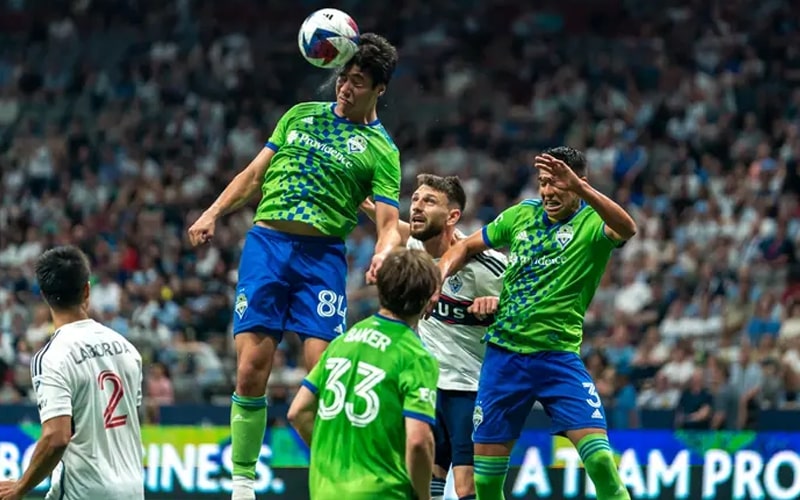International Partnerships: A Strategic Move for MLS Clubs
Major League Soccer (MLS) clubs continue to evolve and grow in popularity across North America. As the league expands, it seeks to establish its presence in the global sports market. International partnerships have emerged as a critical component in this pursuit, offering numerous benefits to both MLS clubs and their overseas counterparts.
Exposure to Worldwide Talent
One of the primary motivations for MLS clubs to forge international partnerships is the opportunity to tap into a broader talent pool. Partnering with clubs from countries with a strong soccer tradition – such as those in Europe or South America – can offer MLS teams access to a wealth of skilled players.
In 2018, for instance, the Chicago Fire signed a partnership agreement with German Bundesliga club FC Bayern Munich. This strategic alliance allows the two clubs to exchange players, coaches, and technical staff, leading to fruitful collaborations and the opportunity to identify and bring new talent to the league.
Competitive Edge on the Field
In addition to scouting for talent, international partnerships can provide MLS clubs with valuable insights into different playing styles and tactics. Exposure to various soccer philosophies can enhance the teams’ overall performance and competitiveness on the field.
For example, in 2019, Atlanta United FC formed a strategic partnership with Aberdeen FC. The alliance facilitated the sharing of technical expertise and tactical knowledge between the two clubs. As a result, Atlanta United became one of the most competitive teams in the MLS, winning the league title in just its second season.
Youth Development and Academies
Investing in youth development is crucial for the long-term success of any soccer club. Partnering with renowned international clubs that have a history of successful youth academies can help MLS clubs fine-tune their youth development programs.
In 2013, New York City FC announced a partnership with English Premier League side Manchester City FC. Through this collaboration, NYCFC gained invaluable insights into Manchester City’s famed youth academy, enabling them to develop their own talent pipeline effectively. Consequently, NYCFC’s academy has produced several promising young players, such as James Sands, who have gone on to represent the first team.
Enhancing Coaching Expertise
Coaching staff can benefit immensely from international partnerships, as they are exposed to new ideas, techniques, and methodologies. Regular exchanges between coaching staff can lead to the cross-pollination of soccer philosophies, ultimately elevating the level of coaching in the MLS.
In 2014, Sporting Kansas City entered into a partnership with French Ligue 1 club AS Monaco. This alliance enabled Sporting KC’s coaching staff to attend training sessions and workshops at Monaco, gaining first-hand exposure to European coaching methods. This experience broadened their understanding of the global game and allowed them to bring fresh ideas back to their club.
Financial Benefits and Revenue Generation
International partnerships can also result in financial benefits for MLS clubs. Revenue generation through merchandising, commercial partnerships, and joint marketing initiatives can contribute to a club’s financial stability and growth.
The partnership between MLS side Los Angeles FC and Mexican club Club Necaxa exemplifies this potential. After joining forces in 2018, the two clubs collaborated on various marketing campaigns targeting the Hispanic audience in the United States and Mexico, a move that significantly expanded both clubs’ fan bases and merchandising revenues.
Building a Global Brand
Establishing a strong brand identity is vital for any sports team seeking to compete on the international stage. By partnering with renowned international clubs, MLS clubs can enhance their global image and reputation.
For instance, the partnership between the Seattle Sounders and English club Tottenham Hotspur has helped raise the profile of both clubs on the world stage. In addition to collaborating on player development and coaching initiatives, the partnership has enabled joint branding and marketing efforts, increasing each club’s visibility and appeal to international audiences.
Fan Engagement and Growing the Fanbase
Fostering connections with international clubs can provide MLS clubs with opportunities to engage with new and diverse fan bases. Pre-season friendlies, exhibition matches, and joint events can attract interest from soccer fans worldwide, exposing them to the growing MLS brand.
In 2019, the San Jose Earthquakes formed a partnership with Spanish La Liga club Valencia CF. As part of their alliance, the two clubs played a friendly match in San Jose, which drew a large crowd and garnered significant media coverage, introducing a new audience to MLS soccer and expanding the Earthquakes’ fan base.
Addressing the International Break Issue
International competitions often lead to disruptions in the MLS schedule, with many players leaving their clubs to represent their countries. By partnering with clubs from different continents, MLS teams can work together to create a more harmonious and flexible schedule, minimizing disruptions and ensuring a seamless flow of league matches.
For example, the partnership between the Colorado Rapids and English club Arsenal FC has allowed both clubs to better manage their schedules during international breaks. By working closely together, they can ensure their players fulfill their international duties without adversely impacting the clubs’ league performances.
Final Thoughts
In conclusion, international partnerships offer a host of advantages for MLS clubs, from access to worldwide talent and enhanced coaching expertise to financial benefits and global brand development. By forging strong relationships with clubs from different continents, MLS teams can continue to evolve, grow, and establish themselves as competitors on the global soccer stage.




